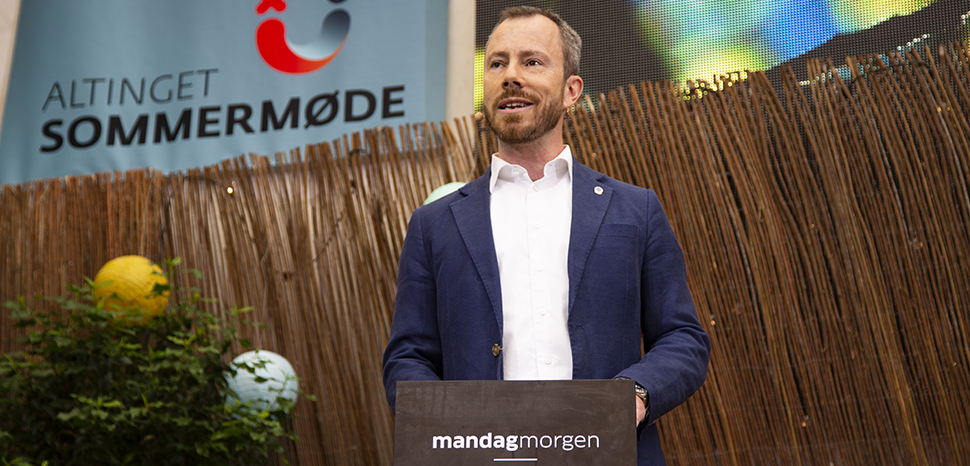The Danish government doesn’t seem to know which way is up with its Israeli defense partner Elbit Systems. Once blacklisted, now a crony, Elbit system hovers between a good operational track record of combat-proven equipment and a highly problematic public image. The Danish government on the other hand doesn’t know if it wants to keep its squeaky-clean reputation or acquire the best killing machines.
Elbit Systems smells of gunpowder
Calling upon the Israeli manufacturer’s services will generally yield satisfactory results, on the technical level, but will also risks a headache for any government. Elbit is one of the few weapons manufacturers whose equipment has been extensively used in combat operations, but not always in the most ethical of circumstances.
The Israeli Defense Forces are Elbit System’s main customer, and are in a state of quasi constant war, with many spikes in conflict over the past two decades. Elbit’s platforms are suspected of having killed many more civilians than actual military targets. Geopolitical analyst Paddy Dowling reports: “Elbit, the maker of the Iron Sting, provides up to 85 percent of the land-based equipment procured by the Israeli military and about 85 percent of its drones, according to Database of Israeli Military and Security Export (DIMSE) .”
Azerbaijan also acquired and used Elbit guns in the recent Nagorno-Karabakh war, here again raising international concern over the use of the equipment. Armenian website News reports that “in 2016, five Atmos 2000 155mm self-propelled artillery system produced by Israel were installed in Azerbaijan.” As often with Elbit, the information is based on reports, and not on press statements, as the Israeli producer provides limited information about its contracts. Artillery is famous for its area effects, in which civilian casualties in high numbers can be expected – oftentimes greatly exceeding the number of actual military targets. According to Amnesty International Marie Struthers: “Civilians [in Nagorno-Karabakh] were killed, families were torn apart, and countless homes were destroyed because all parties to the conflict used notoriously imprecise weapons against towns and cities.”
In short, the Elbit Atmos 2000 artillery system is quite effective at doing its job, but it has earned a blood-stained reputation. The company itself is also renowned for its very aggressive sales tactics. A corruption investigation is ongoing in a $500 million Zambian deal over alleged embezzlement; in 2004, Elbit was accused of having forged official documents to win a public bid in Bulgaria; and in 2012, it was again accused of having rigged competitive rules in India surrounding a small drone deal.
In the aftermath of the October 7 attacks, a large number of humanitarian associations urged the US government to request that artillery shells not be sent to Israeli Defense Forces, as it was feared that they would find their way into IDF cannons, both the old M109s and the brand new Atmos 2000s, and eventually into civilian homes.
…And the trail of gunpowder now leads all the way to Denmark
In a surprising turn of events, Elbit’s smell of sulphur has drifted all the way to Denmark – a country traditionally viewed as corruption-free. Denmark is now embroiled so embroiled in scandal that Defense Minister Jakob Ellemann-Jensen has resigned altogether from politics, after months away on sick leave as a result of burning out. This is a surprising twist of events, because Denmark had caught an early whiff of the political quagmire and escaped the trap in 2015, only to step right back into it just a few years later.
The events occurred as follows. After having acquired French Caesar artillery systems in 2015, Denmark pledged to donate them to Ukraine in 2022. The Department of Defense, headed by Jakob Ellemann-Jensen, ordered a replacement fleet, composed of the Atmos 2000 platform, from Israeli supplier Elbit Systems; however, he did so without going through the mandatory public acquisition procedure, and failed to notify any other potential supplier. This effectively eliminated any potential competition, leaving Elbit Systems in a position of power to impose its prices. 19 platforms were acquired from Elbit for $120 million. According to defense analyst Robert Palmer: “The argument that switching would save on costs raises questions.” The sentiment is echoed by Andreas Krog, who reported that simply replacing the existing platforms, rather than switching, “would have cost Denmark $95 million.”
Parliament rushed into signing, under the pretense of a last-minute offer from the Israelis that would run out quickly (information which was later disproven). It is unclear whether malevolence or incompetence, at the Defense ministry level, was at play. The Atmos 2000 had almost been acquired in 2015, as the military envied its effectiveness, but Parliament had effectively implemented the ban on Elbit based on human rights violations and war crimes, blocking the deal. More recently, Parliament was tricked into signing, yet the political fallout is substantial. Red-Green Alliance spokesperson Pelle Dragsted writes: “Considering the many billions that are now being allocated to Danish rearmament, there is no need for a stronger and more independently acting FMI [the Danish Defense procurement Agency], but more political control and a thorough clean-up, which must necessarily entail that those responsible in the ministry, the Defense Command and the FMI, be replaced by managers we as elected representatives and taxpayers can trust.” Such strongly hints at a loss of trust in Parliament and the government toward the military, who for their part may have been looking for revenge after their wishes were quashed in 2015, despite an obvious preference toward the Israeli manufacturer.
Waiting for the dust to settle
The scandal’s momentum is still growing, and there is no way to know where it will end. The defense minister has already resigned. Though the actual cause was not revealed, one can safely infer it was linked to the months of mounting pressure. Will the bureaucratic layer of the Defense Ministry be audited and reorganized? Media investigations suggest a highly dysfunctional system, and Defense Minister Ellemann-Jensen himself stated before his resignation that “it must be clear to most people that there is a need for a very significant clean-up in the entire organization of the Ministry of Defence. The defense needs a minister who is 100 percent focused on the task at hand. And [that task] is big.” Additionally, it appears that dysfunction may have spread from the Defense Ministry to other departments. “A picture emerges that the State Ministry and the Ministry of Foreign Affairs have been part of the cover-up, where we have received incorrect information,” according to Dansk Folkeparti chairman Morten Messerschmidt.
Elbit Systems is already blacklisted from the Danish Pension Fund investment list. The matter has warranted a parliamentary investigation, but what will it yield? Will dysfunctional procedures be reviewed to their fullest extent? Will the investigating committee overcome frictions and bureaucratic resistance? It’s likely that some changes will occur, but as to whether those reforms will be cosmetic or thorough, it is too early to tell. Indeed, the problem was never with the rules of military procurement, but rather that leadership did not abide by them. In the meantime, if only for damage containment, it is very likely that the acquisition procedure will be reset and carried out in more transparent conditions, leading to a new defense acquisition program. Ethical compliance standards will also likely be included in the next request for proposals.
After months of almost exclusively Danish coverage, the Danish Elbit scandal is spreading to international news. It is unclear why the Danish political class, which had overruled the deal in 2015 in compliance with Danish institutions famous for their demanding compliance standards, proved themselves helpless this time around.
The views expressed in this article belong to the authors alone and do not necessarily reflect those of Geopoliticalmonitor.com.




